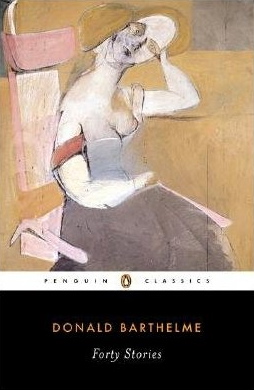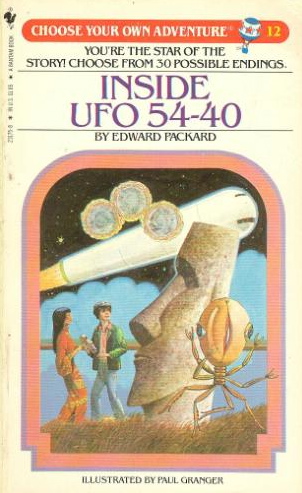
Charles Yu is the author of How to Live Safely in a Science Fictional Universe, surely our favorite book about “a son searching for his father…through quantum space-time.” We were thrilled meet Yu at Comic-Con in 2010, and had a really fun conversation with him about the science of storytelling, time travel, and more.
This year, Yu will return to Comic-Con to promote his new collection of short stories, SORRY PLEASE THANK YOU, which goes on sale July 24. The book kicks off with a story called “Standard Loneliness Package,” about a guy who — thanks to the miracle of science fiction — will literally feel your pain for a price. Want to pull the plug on grandpa but can’t deal with the emotional baggage? Just call.
In another story, a big-box store employee is confronted by a zombie during the graveyard shift. With SORRY PLEASE THANK YOU, Yu once again shows that his creativity and imagination are second-to-none. Whether his work is dark, thought provoking, humorous, or all of the above, it’s always compulsively readable.
Yu will appear at Comic-Con on Saturday, July 14, and will be selling early copies of SORRY PLEASE THANK YOU at the Pantheon booth (#1515). He will also join the Sci-Fi panel at 3pm (Room 23ABC).
While you wait impatiently for the biggest, nerdiest holiday of the year, check out Charles Yu’s list of influences below.
Poetic Memory: Charles Yu
 1. Donald Barthelme: I always go back to him when I am bored by my own sentences (i.e., very often). The pieces in 40 Stories are vessels for pure tone that I can’t explain and don’t even really understand. But they burrow down into a deep place in my brain and they vibrate something there.
1. Donald Barthelme: I always go back to him when I am bored by my own sentences (i.e., very often). The pieces in 40 Stories are vessels for pure tone that I can’t explain and don’t even really understand. But they burrow down into a deep place in my brain and they vibrate something there.
For me, a Barthelme story is communication that takes place on a two-track channel. A completely insane guy at a bar starts telling you a yarn. The words coming out of his mouth make no sense. The facial expressions he is making as he tells it are ridiculous. But when you put the two together, somehow it’s like he is talking directly into your heart. He can convey something about what it feels like to be alive in a non-rational (but not irrational) way. Like music, I think.
2. Richard Powers: For the unbelievable degree of difficulty. Like, how does his process work? Let’s see, I’ll start with a frame, one that explores a cutting-edge scientific body of knowledge and the newest ideas in that field. Across that frame I will stretch multiple narrative, conceptual and chronological threads, and cross-cut between those threads to make the  thing even more complex. And in all of that I will somehow manage to tell an emotional and moving story. It’d be like playing a violin concerto that is somehow about quantum mechanics while blindfolded and balancing on one foot on the wing of an airplane. And then he makes you cry.
thing even more complex. And in all of that I will somehow manage to tell an emotional and moving story. It’d be like playing a violin concerto that is somehow about quantum mechanics while blindfolded and balancing on one foot on the wing of an airplane. And then he makes you cry.
3. Nicholson Baker: Superhuman attention to detail and jaw-dropping precision with, and command of, language, yes, but really for me it’s about his ability to enclose a compartment around the reader and the narrator. Look at the very first lines of The Fermata and The Mezzanine. The very first sentence, bang, you are inside a weird subspace. It’s something only a book can do. Only a novel, even. From Baker I learned that a novel can be a space, not a progression of events.
4. Don DeLillo: The thing Whitehead said about Western philosophy being a series of footnotes to Plato? Sometimes when I’m writing, I feel like I’m going to spend my entire adult life trying to come up with a few semi-decent footnotes to about half a dozen passages in White Noise: the most photographed barn in America, the supermarket, the dialogues between Gladney and Murray, the Airborne Toxic Event. That’s it. Everything I’m trying to do will amount to one good blog comment on the work of DeLillo. If I’m lucky.
 5. George Saunders: If I keep idolizing him in print, he’s going to get a restraining order against me. But really, it’s hard to overstate his influence. Velocity and compression. I should stencil that on my wall above the computer. Or tattoo it on my forearm. Which might just be the dorkiest tattoo ever.
5. George Saunders: If I keep idolizing him in print, he’s going to get a restraining order against me. But really, it’s hard to overstate his influence. Velocity and compression. I should stencil that on my wall above the computer. Or tattoo it on my forearm. Which might just be the dorkiest tattoo ever.
6. Choose Your Own Adventure Books: Read these in grade school, and I’m still just trying to re-create the feeling I had the first time read one of these. If you’re eight years old, and you’re reading a book, and you make a choice, and then you come to a page and it says, sorry kid, you just drowned, you’re dead now, that’s definitely something that’s going to leave an impression on you. I’ll never do something as formally innovative as these books, but I will die trying. I remember one book, Inside UFO 54-40, where there was page that described a happy ending where you reach paradise, but the trick was that it was actually impossible to get there by making choices. You actually had to cheat and just randomly read pages from the book, and then you’d find it. How messed up is that? Man, I miss those books.
